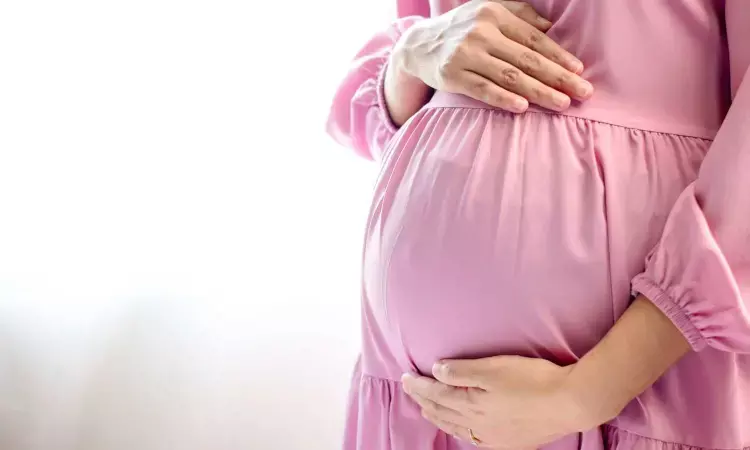- Home
- Medical news & Guidelines
- Anesthesiology
- Cardiology and CTVS
- Critical Care
- Dentistry
- Dermatology
- Diabetes and Endocrinology
- ENT
- Gastroenterology
- Medicine
- Nephrology
- Neurology
- Obstretics-Gynaecology
- Oncology
- Ophthalmology
- Orthopaedics
- Pediatrics-Neonatology
- Psychiatry
- Pulmonology
- Radiology
- Surgery
- Urology
- Laboratory Medicine
- Diet
- Nursing
- Paramedical
- Physiotherapy
- Health news
- Fact Check
- Bone Health Fact Check
- Brain Health Fact Check
- Cancer Related Fact Check
- Child Care Fact Check
- Dental and oral health fact check
- Diabetes and metabolic health fact check
- Diet and Nutrition Fact Check
- Eye and ENT Care Fact Check
- Fitness fact check
- Gut health fact check
- Heart health fact check
- Kidney health fact check
- Medical education fact check
- Men's health fact check
- Respiratory fact check
- Skin and hair care fact check
- Vaccine and Immunization fact check
- Women's health fact check
- AYUSH
- State News
- Andaman and Nicobar Islands
- Andhra Pradesh
- Arunachal Pradesh
- Assam
- Bihar
- Chandigarh
- Chattisgarh
- Dadra and Nagar Haveli
- Daman and Diu
- Delhi
- Goa
- Gujarat
- Haryana
- Himachal Pradesh
- Jammu & Kashmir
- Jharkhand
- Karnataka
- Kerala
- Ladakh
- Lakshadweep
- Madhya Pradesh
- Maharashtra
- Manipur
- Meghalaya
- Mizoram
- Nagaland
- Odisha
- Puducherry
- Punjab
- Rajasthan
- Sikkim
- Tamil Nadu
- Telangana
- Tripura
- Uttar Pradesh
- Uttrakhand
- West Bengal
- Medical Education
- Industry
No increased risk of birth defects after covid-19 infection or vaccination in early pregnancy, finds study

Neither covid-19 infection nor vaccination during the first trimester of pregnancy is associated with increased risk of major birth defects, finds a study from Scandinavia published by The BMJ today.
It’s well known that women who experience covid-19 infection during pregnancy are at increased risk of severe illness and have a higher risk of complications, including preterm birth and stillbirth.
Less clear is the risk of birth defects (congenital anomalies) after infection with or vaccination against covid-19 as it has only recently become possible to study this research question.
To explore this, researchers used national health registries to identify 343,066 liveborn single infants in Sweden, Denmark and Norway with an estimated start of pregnancy between 1 March 2020 and 14 February 2022 and a minimum of nine months of postnatal follow-up time.
Information on laboratory-confirmed polymerase chain reaction (PCR) positive covid-19 tests and vaccination was obtained from national health records and vaccination registries.
Major congenital anomalies were grouped according to EUROCAT definitions and included defects of the heart, nervous and respiratory systems, eye, ear, face and neck anomalies, oro-facial clefts, genital and limb anomalies.
Potentially influential factors such as mother’s age, education, country of birth, weight (BMI), existing chronic conditions, and smoking during pregnancy, were also accounted for in the analyses.
Of the 343,066 infants included in the infection analysis, 10,229 (3%) were exposed to covid-19 infection during the first trimester and of 152,261 infants in the vaccination analysis 29,135 (19%) were exposed to covid-19 vaccination during the first trimester.
A total of 17,704 (5.2%) of infants were diagnosed with a major congenital anomaly, but the researchers found no increased risk of any major congenital anomaly after infection with or vaccination against covid-19 during the first trimester.
Overall, no notable increased risk among offspring of women vaccinated against covid-19 during the first trimester was found for ten of the eleven groups of anomalies evaluated.
This is an observational study so no firm conclusions can be drawn about cause and effect, and although the researchers adjusted for a range of factors, they can’t rule out the possibility that other unmeasured factors, such as underlying genetic risk and pre-existing conditions in the women, may have influenced their results.
Nevertheless, this was a large study that used high-quality data from several countries, and results were similar after further analyses providing greater confidence in their conclusions.
As such, they say that neither covid-19 infection or vaccination during the first trimester of pregnancy was associated with congenital anomalies. There also appeared to be no notable variation in the risk according to viral variants, although larger studies are needed to provide more robust evidence.
Reference:
Magnus M C, Söderling J, Örtqvist A K, Andersen A N, Stephansson O, Håberg S E et al. Covid-19 infection and vaccination during first trimester and risk of congenital anomalies: Nordic registry based study BMJ 2024; 386 :e079364 doi:10.1136/bmj-2024-079364.
Dr Kamal Kant Kohli-MBBS, DTCD- a chest specialist with more than 30 years of practice and a flair for writing clinical articles, Dr Kamal Kant Kohli joined Medical Dialogues as a Chief Editor of Medical News. Besides writing articles, as an editor, he proofreads and verifies all the medical content published on Medical Dialogues including those coming from journals, studies,medical conferences,guidelines etc. Email: drkohli@medicaldialogues.in. Contact no. 011-43720751


